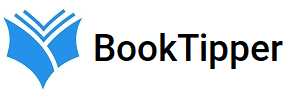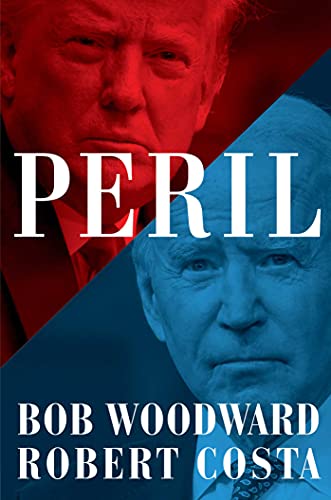
PERIL
by Bob Woodward & Robert Costa
The transition from President Donald J. Trump to President Joseph R. Biden Jr. stands as one of the most dangerous periods in American history.
But as # 1 internationally bestselling author Bob Woodward and acclaimed reporter Robert Costa reveal for the first time, it was far more than just a domestic political crisis.
Woodward and Costa interviewed more than 200 people at the center of the turmoil, resulting in more than 6,000 pages of transcripts—and a spellbinding and definitive portrait of a nation on the brink.
This classic study of Washington takes readers deep inside the Trump White House, the Biden White House, the 2020 campaign, and the Pentagon and Congress, with vivid, eyewitness accounts of what really happened.
Peril is supplemented throughout with never-before-seen material from secret orders, transcripts of confidential calls, diaries, emails, meeting notes and other personal and government records, making for an unparalleled history.
It is also the first inside look at Biden’s presidency as he faces the challenges of a lifetime: the continuing deadly pandemic and millions of Americans facing soul-crushing economic pain, all the while navigating a bitter and disabling partisan divide, a world rife with threats, and the hovering, dark shadow of the former president.
“We have much to do in this winter of peril,” Biden declared at his inauguration, an event marked by a nerve-wracking security alert and the threat of domestic terrorism.
Peril is the extraordinary story of the end of one presidency and the beginning of another, and represents the culmination of Bob Woodward’s news-making trilogy on the Trump presidency, along with Fear and Rage. And it is the beginning of a collaboration with fellow Washington Post reporter Robert Costa that will remind readers of Woodward’s coverage, with Carl Bernstein, of President Richard M. Nixon’s final days.
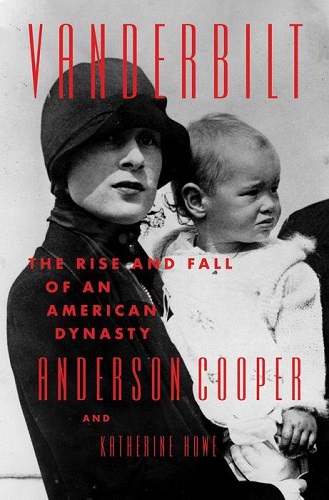
VANDERBILT: THE RISE & FALL OF AN AMERICAN DYNASTY
by Anderson Cooper & Katherine Howe
New York Times bestselling author and journalist Anderson Cooper teams with New York Times bestselling historian and novelist Katherine Howe to chronicle the rise and fall of a legendary American dynasty—his mother’s family, the Vanderbilts.
When eleven-year-old Cornelius Vanderbilt began to work on his father’s small boat ferrying supplies in New York Harbor at the beginning of the nineteenth century, no one could have imagined that one day he would, through ruthlessness, cunning, and a pathological desire for money, build two empires—one in shipping and another in railroads—that would make him the richest man in America. His staggering fortune was fought over by his heirs after his death in 1877, sowing familial discord that would never fully heal. Though his son Billy doubled the money left by “the Commodore,” subsequent generations competed to find new and ever more extraordinary ways of spending it. By 2018, when the last Vanderbilt was forced out of The Breakers—the seventy-room summer estate in Newport, Rhode Island, that Cornelius’s grandson and namesake had built—the family would have been unrecognizable to the tycoon who started it all.
Now, the Commodore’s great-great-great-grandson Anderson Cooper, joins with historian Katherine Howe to explore the story of his legendary family and their outsized influence. Cooper and Howe breathe life into the ancestors who built the family’s empire, basked in the Commodore’s wealth, hosted lavish galas, and became synonymous with unfettered American capitalism and high society. Moving from the hardscrabble wharves of old Manhattan to the lavish drawing rooms of Gilded Age Fifth Avenue, from the ornate summer palaces of Newport to the courts of Europe, and all the way to modern-day New York, Cooper and Howe wryly recount the triumphs and tragedies of an American dynasty unlike any other.
Written with a unique insider’s viewpoint, this is a rollicking, quintessentially American history as remarkable as the family it so vividly captures.
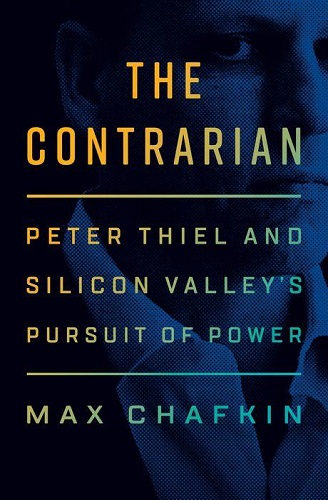
THE CONTRARIAN
by Max Chafkin
A biography of venture capitalist and entrepreneur Peter Thiel, the enigmatic, controversial, and hugely influential power broker who sits at the dynamic intersection of tech, business, and politics
“Max Chafkin’s The Contrarian is much more than a consistently shocking biography of Peter Thiel, the most important investor in tech and a key supporter of the Donald Trump presidency. It’s also a disturbing history of Silicon Valley that will make you reconsider the ideological foundations of America’s relentless engine of creative destruction.”—Brad Stone, author of The Everything Store and Amazon Unbound
Since the days of the dot-com bubble in the late 1990s, no industry has made a greater impact on the world than Silicon Valley. And few individuals have done more to shape Silicon Valley than Peter Thiel. The billionaire venture capitalist and entrepreneur has been a behind-the-scenes operator influencing countless aspects of our contemporary way of life, from the technologies we use every day to the delicate power balance between Silicon Valley, Wall Street, and Washington. But despite his power and the ubiquity of his projects, no public figure is quite so mysterious.
In the first major biography of Thiel, Max Chafkin traces the trajectory of the innovator’s singular life and worldview, from his upbringing as the child of immigrant parents and years at Stanford as a burgeoning conservative thought leader to his founding of PayPal and Palantir, early investment in Facebook and SpaceX, and relationships with fellow tech titans Mark Zuckerberg, Elon Musk, and Eric Schmidt. The Contrarian illuminates the extent to which Thiel has sought to export his values to the corridors of power beyond Silicon Valley, including funding the lawsuit that destroyed the blog Gawker and strenuously backing far-right political candidates, notably Donald Trump for president in 2016.
Eye-opening and deeply reported, The Contrarian is a revelatory biography of a one-of-a-kind leader and an incisive portrait of a tech industry whose explosive growth and power is both thrilling and fraught with controversy.
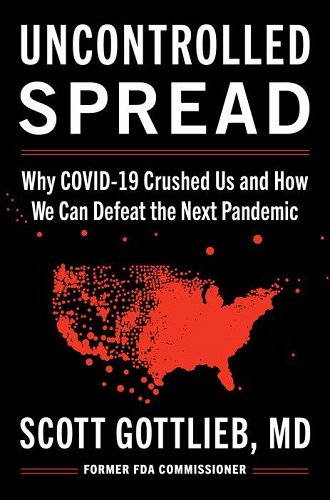
UNCONTROLLED SPREAD
by Scott Gottlieb, MD
Physician and former FDA commissioner Scott Gottlieb asks: Has America’s COVID-19 catastrophe taught us anything?
In Uncontrolled Spread, he shows how the coronavirus and its variants were able to trounce America’s pandemic preparations, and he outlines the steps that must be taken to protect against the next outbreak. As the pandemic unfolded, Gottlieb was in regular contact with all the key players in Congress, the Trump administration, and the drug and diagnostic industries. He provides an inside account of how level after level of American government crumbled as the COVID-19 crisis advanced.
A system-wide failure across government institutions left the nation blind to the threat, and unable to mount an effective response. We’d prepared for the wrong virus. We failed to identify the contagion early enough and became overly reliant on costly and sometimes divisive tactics that couldn’t fully slow the spread. We never considered asymptomatic transmission and we assumed people would follow public health guidance. Key bureaucracies like the CDC were hidebound and outmatched. Weak political leadership aggravated these woes. We didn’t view a public health disaster as a threat to our national security.
Many of the woes sprung from the CDC, which has very little real-time reporting capability to inform us of Covid’s twists and turns or assess our defenses. The agency lacked an operational capacity and mindset to mobilize the kind of national response that was needed. To guard against future pandemic risks, we must remake the CDC and properly equip it to better confront crises. We must also get our intelligence services more engaged in the global public health mission, to gather information and uncover emerging risks before they hit our shores so we can head them off. For this role, our clandestine agencies have tools and capabilities that the CDC lacks.
Uncontrolled Spread argues we must fix our systems and prepare for a deadlier coronavirus variant, a flu pandemic, or whatever else nature — or those wishing us harm — may threaten us with. Gottlieb outlines policies and investments that are essential to prepare the United States and the world for future threats.

THE LONG WAR
by David Loyn
Just as U. S. soldiers and diplomats pulled out of Afghanistan, supposedly concluding their role and responsibility in the two-decade conflict, the country fell to the Taliban. In The Long War, award-winning BBC foreign correspondent David Loyn uncovers the political and military strategies―and failures―that prolonged America’s longest war.
Three American presidents tried to defeat the Taliban―sending 150,000 international troops at the war’s peak with a trillion-dollar price tag. But early policy mistakes that allowed Osama bin Laden to escape made the task far more difficult. Deceived by easy victories, they backed ruthless corrupt local allies and misspent aid.
The story of The Long War is told by the generals who led it through the hardest years of combat as surges of international troops tried to turn the tide. Generals, which include David Petraeus, Stanley McChrystal, Joe Dunford and John Allen, were tested in battle as never before. With the reputation of a “warrior monk,” McChrystal was considered one of the most gifted military leaders of his generation. He was one of two generals to be fired in this most public of commands.
Holding together the coalition of countries who joined America’s fight in Afghanistan was just one part of the multi-dimensional puzzle faced by the generals, as they fought an elusive and determined enemy while responsible for thousands of young American and allied lives. The Long War goes behind the scenes of their command and of the Afghan government.
The fourth president to take on the war, Joe Biden ordered troops to withdraw in 2021, twenty years after 9/11, just as the Taliban achieved victory, leaving behind an unstable nation and an unforeseeable future.

HOW TO SAVE A LIFE
by Lynette Rice
The first inside story of one of TV’s most popular and beloved dramas, Grey’s Anatomy.
More than fifteen years after its premiere, Grey’s Anatomy remains one of the most beloved dramas on television and ABC’s most important property. It typically wins its time slot and has ranked in the Top 20 most-watched shows in primetime for most of its seventeen-season run. It currently averages more than eight million viewers each week.
Beyond that, it’s been a cultural touchstone. It introduced the unique voice and vision of Shonda Rhimes; it made Ellen Pompeo, Sandra Oh and T.R. Knight household names; and injected words and phrases into the cultural lexicon, such as “McDreamy,” “seriously,” and “you’re my person.” And the behind-the-scenes drama has always been just as juicy as what was happening in front of the camera, from the controversial departure of Isaiah Washington to Katherine Heigl’s fall from grace and Patrick Dempsey’s shocking death episode. The show continued to hemorrhage key players, but the beloved hospital series never skipped a beat.
Lynette Rice’s How to Save A Life takes a totally unauthorized deep dive into the show’s humble start, while offering exclusive intel on the behind-the-scenes culture, the most heartbreaking departures and the more polarizing plotlines. This exhaustively enthusiastic book is one that no Grey’s Anatomy fan should be without.

THE GENETIC LOTTERY
by Kathryn Paige Harden
A provocative and timely case for how the science of genetics can help create a more just and equal society
In recent years, scientists like Kathryn Paige Harden have shown that DNA makes us different, in our personalities and in our health—and in ways that matter for educational and economic success in our current society.
In The Genetic Lottery, Harden introduces readers to the latest genetic science, dismantling dangerous ideas about racial superiority and challenging us to grapple with what equality really means in a world where people are born different. Weaving together personal stories with scientific evidence, Harden shows why our refusal to recognize the power of DNA perpetuates the myth of meritocracy, and argues that we must acknowledge the role of genetic luck if we are ever to create a fair society.
Reclaiming genetic science from the legacy of eugenics, this groundbreaking book offers a bold new vision of society where everyone thrives, regardless of how one fares in the genetic lottery.

SAVING US
by Katharine Hayhoe
“An optimistic view on why collective action is still possible—and how it can be realized.” —The New York Times
“A must-read if we’re serious about enacting positive change from the ground up, in communities, and through human connections and human emotions.” —Margaret Atwood, Twitter
United Nations Champion of the Earth, climate scientist, and evangelical Christian Katharine Hayhoe changes the debate on how we can save our future.
Called “one of the nation’s most effective communicators on climate change” by The New York Times, Katharine Hayhoe knows how to navigate all sides of the conversation on our changing planet. A Canadian climate scientist living in Texas, she negotiates distrust of data, indifference to imminent threats, and resistance to proposed solutions with ease. Over the past fifteen years Hayhoe has found that the most important thing we can do to address climate change is talk about it—and she wants to teach you how.
In Saving Us, Hayhoe argues that when it comes to changing hearts and minds, facts are only one part of the equation. We need to find shared values in order to connect our unique identities to collective action. This is not another doomsday narrative about a planet on fire. It is a multilayered look at science, faith, and human psychology, from an icon in her field—recently named chief scientist at The Nature Conservancy.
Drawing on interdisciplinary research and personal stories, Hayhoe shows that small conversations can have astonishing results. Saving Us leaves us with the tools to open a dialogue with your loved ones about how we all can play a role in pushing forward for change.
Still Hot in Non-Fiction & Biography

THINK AGAIN
by Adam Grant
#1 New York Times Bestseller
“THIS. This is the right book for right now. Yes, learning requires focus. But, unlearning and relearning requires much more—it requires choosing courage over comfort. In Think Again, Adam Grant weaves together research and storytelling to help us build the intellectual and emotional muscle we need to stay curious enough about the world to actually change it. I’ve never felt so hopeful about what I don’t know.”
—Brené Brown, Ph.D., #1 New York Times bestselling author of Dare to Lead
The bestselling author of Give and Take and Originals examines the critical art of rethinking: learning to question your opinions and open other people’s minds, which can position you for excellence at work and wisdom in life
Intelligence is usually seen as the ability to think and learn, but in a rapidly changing world, there’s another set of cognitive skills that might matter more: the ability to rethink and unlearn. In our daily lives, too many of us favor the comfort of conviction over the discomfort of doubt. We listen to opinions that make us feel good, instead of ideas that make us think hard. We see disagreement as a threat to our egos, rather than an opportunity to learn. We surround ourselves with people who agree with our conclusions, when we should be gravitating toward those who challenge our thought process. The result is that our beliefs get brittle long before our bones. We think too much like preachers defending our sacred beliefs, prosecutors proving the other side wrong, and politicians campaigning for approval–and too little like scientists searching for truth. Intelligence is no cure, and it can even be a curse: being good at thinking can make us worse at rethinking. The brighter we are, the blinder to our own limitations we can become.
Organizational psychologist Adam Grant is an expert on opening other people’s minds–and our own. As Wharton’s top-rated professor and the bestselling author of Originals and Give and Take, he makes it one of his guiding principles to argue like he’s right but listen like he’s wrong. With bold ideas and rigorous evidence, he investigates how we can embrace the joy of being wrong, bring nuance to charged conversations, and build schools, workplaces, and communities of lifelong learners. You’ll learn how an international debate champion wins arguments, a Black musician persuades white supremacists to abandon hate, a vaccine whisperer convinces concerned parents to immunize their children, and Adam has coaxed Yankees fans to root for the Red Sox. Think Again reveals that we don’t have to believe everything we think or internalize everything we feel. It’s an invitation to let go of views that are no longer serving us well and prize mental flexibility over foolish consistency. If knowledge is power, knowing what we don’t know is wisdom.
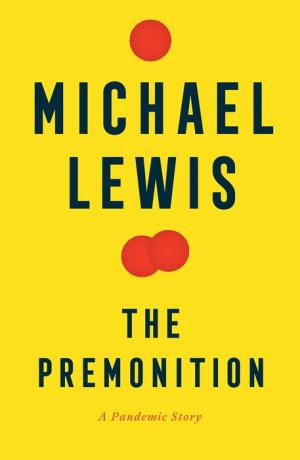
THE PREMONITION
by Michael Lewis
New York Times Bestseller
For those who could read between the lines, the censored news out of China was terrifying. But the president insisted there was nothing to worry about.
Fortunately, we are still a nation of skeptics. Fortunately, there are those among us who study pandemics and are willing to look unflinchingly at worst-case scenarios. Michael Lewis’s taut and brilliant nonfiction thriller pits a band of medical visionaries against the wall of ignorance that was the official response of the Trump administration to the outbreak of COVID-19.
The characters you will meet in these pages are as fascinating as they are unexpected. A thirteen-year-old girl’s science project on transmission of an airborne pathogen develops into a very grown-up model of disease control. A local public-health officer uses her worm’s-eye view to see what the CDC misses, and reveals great truths about American society. A secret team of dissenting doctors, nicknamed the Wolverines, has everything necessary to fight the pandemic: brilliant backgrounds, world-class labs, prior experience with the pandemic scares of bird flu and swine flu…everything, that is, except official permission to implement their work.
Michael Lewis is not shy about calling these people heroes for their refusal to follow directives that they know to be based on misinformation and bad science. Even the internet, as crucial as it is to their exchange of ideas, poses a risk to them. They never know for sure who else might be listening in.
